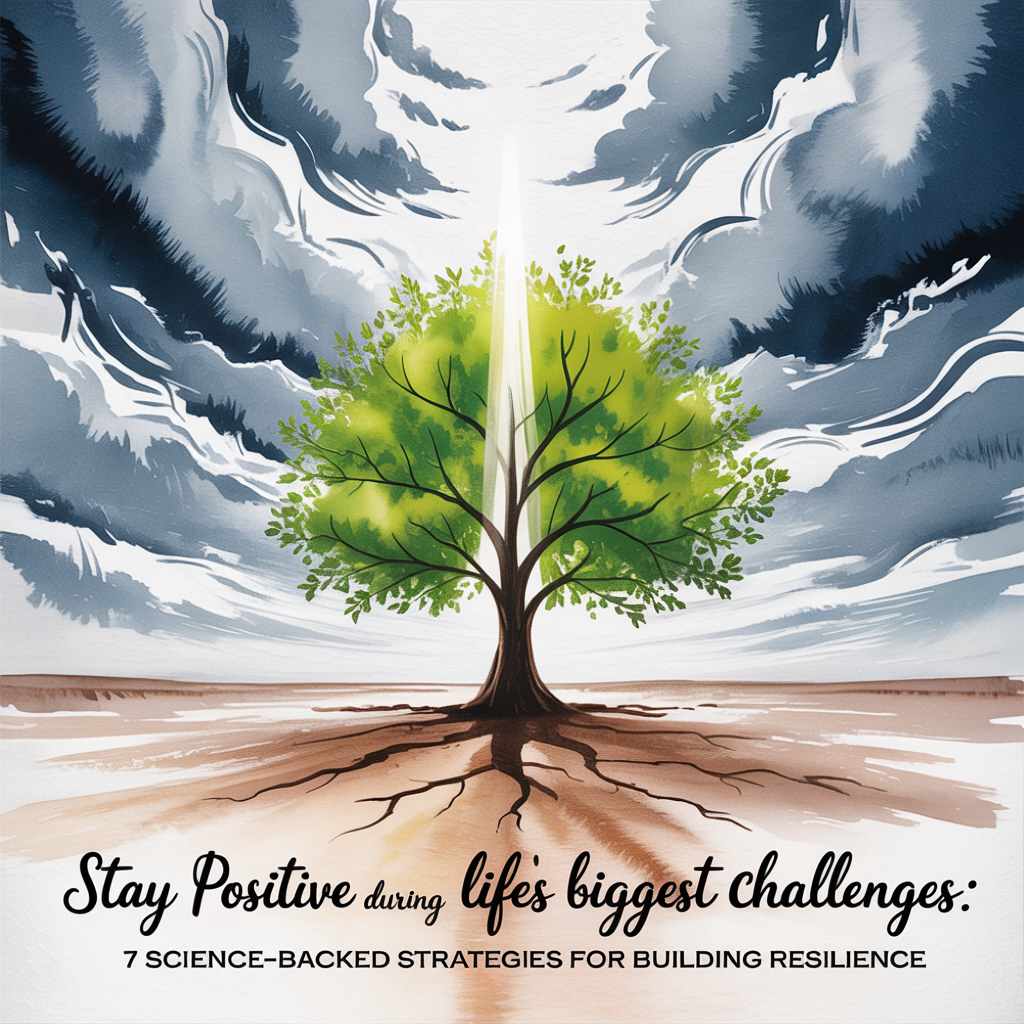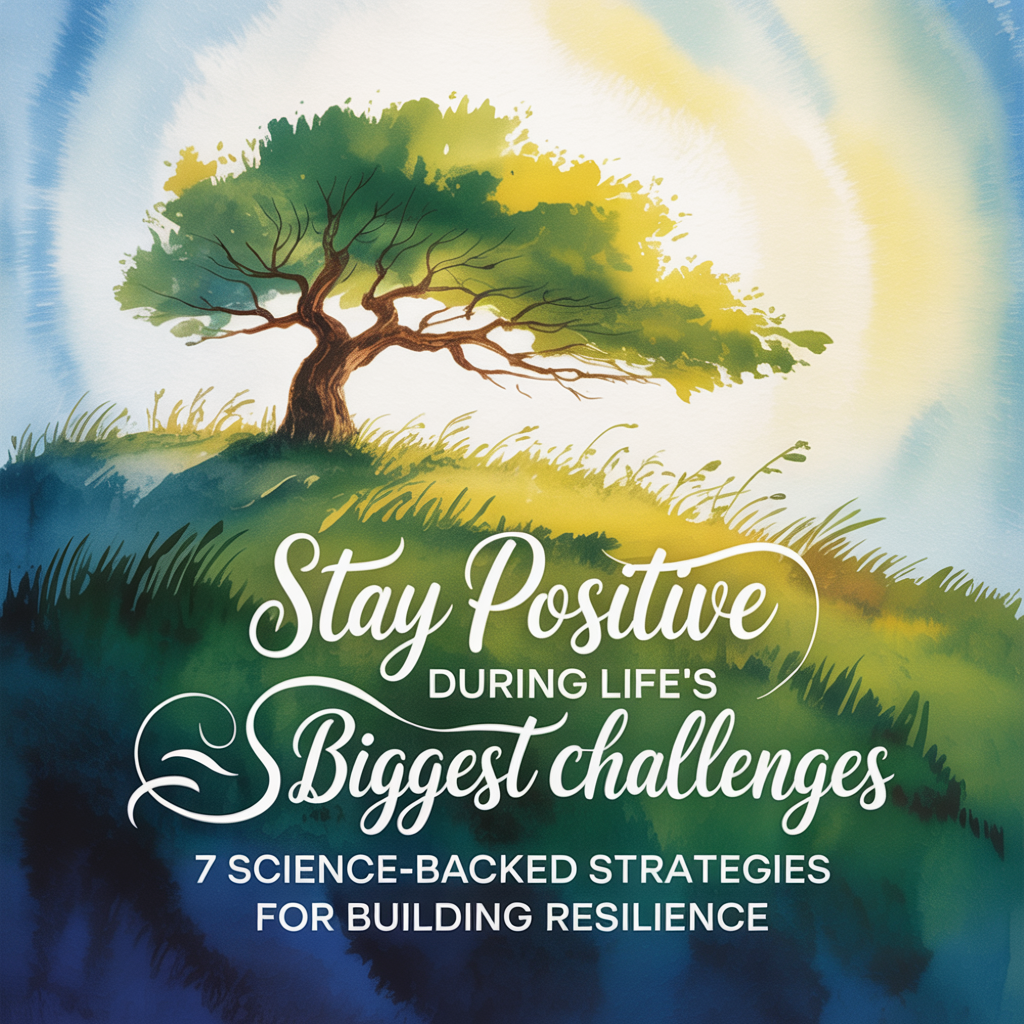Staying positive during tough times doesn’t mean plastering on a fake smile or pretending everything is fine. True resilience comes from what psychologists call “realistic optimism”—acknowledging your challenges while maintaining hope for better outcomes.
Studies published in the Journal of Personality and Social Psychology show that people who practice realistic optimism experience:
- 50% better stress management
- Improved immune system function
- Higher rates of goal achievement
- Better relationships and social support
Viktor Frankl’s Survival Secret: Finding Meaning in the Worst Circumstances
Holocaust survivor and psychiatrist Viktor Frankl discovered something remarkable during his time in Nazi concentration camps. The prisoners who survived weren’t necessarily the strongest physically—they were the ones who maintained purpose and meaning despite unimaginable suffering.
Frankl’s famous insight still guides resilience training today: “Everything can be taken from a man but one thing: the last of human freedoms—to choose one’s attitude in any given set of circumstances.” This principle forms the foundation of modern positive psychology and cognitive behavioral therapy.
Strategy #1: Master the Art of Cognitive Reframing
How to Transform Negative Thoughts Into Growth Opportunities
Cognitive reframing is your most powerful tool for staying positive. Instead of asking “Why me?” when facing challenges, resilient people ask “What can I learn?” or “How will this make me stronger?”
Real-World Example: How Oprah Turned Trauma Into Triumph
Oprah Winfrey’s story perfectly illustrates the power of reframing. Despite experiencing poverty, abuse, and discrimination, she consistently viewed these challenges as sources of strength and empathy. This perspective enabled her to connect with millions of people facing similar struggles and build a media empire worth billions.
The Science of Perspective Shifts
Cognitive behavioral therapy research proves that our emotional responses depend more on our interpretation of events than the events themselves. When you consciously choose to interpret challenges as growth opportunities rather than personal attacks, you maintain emotional balance during difficult times.
Quick Reframing Technique:
- Identify the negative thought
- Ask: “Is this helping me solve the problem?”
- Reframe: “What opportunity does this create?”
- Focus on actionable next steps


Strategy #2: Build Unshakeable Emotional Resilience
3 Daily Practices That Strengthen Your Mental Muscle
Emotional resilience—your ability to bounce back from setbacks—can be developed like any other skill. These evidence-based practices will help you build psychological strength:
1. Mindfulness Meditation: Your Daily Mental Reset
Just 10 minutes of daily mindfulness meditation can dramatically improve your stress response. Research from Harvard Medical School shows that regular meditation:
- Reduces cortisol (stress hormone) by up to 23%
- Increases gray matter in areas linked to emotional regulation
- Improves focus and decision-making under pressure
2. The Gratitude Practice That Changes Everything
Psychologist Robert Emmons’ groundbreaking research on gratitude reveals that people who write down three things they’re grateful for daily experience:
- 25% increase in happiness levels
- Better sleep quality
- Stronger immune system function
- Improved relationships
3. Exercise: The Natural Antidepressant
Physical activity is one of the most powerful mood boosters available. Even 20 minutes of moderate exercise releases endorphins and reduces symptoms of depression and anxiety. Many successful people credit their workout routines with maintaining mental clarity during challenging periods.
Strategy #3: Find Your “Why” – The Power of Purpose-Driven Positivity
How Personal Mission Transforms Pain Into Progress
When you connect your challenges to a larger purpose, staying positive becomes infinitely easier. This principle transforms ordinary people into extraordinary change-makers.
Candy Lightner: From Grief to Global Impact
When Candy Lightner’s 13-year-old daughter was killed by a drunk driver, she could have been consumed by grief and anger. Instead, she channeled these emotions into founding Mothers Against Drunk Driving (MADD). This organization has saved thousands of lives and fundamentally changed public attitudes toward drunk driving.
Malala’s Mission: Education as Unstoppable Force
After being shot by the Taliban for advocating girls’ education, Malala Yousafzai used her experience to amplify her message globally. Rather than retreating in fear, she became the youngest Nobel Prize laureate in history. Her unwavering focus on purpose sustained her positivity through extreme adversity.
Finding Your Purpose During Tough Times:
- Ask: “How can my experience help others?”
- Identify values that remain constant despite challenges
- Connect daily actions to larger goals
- Share your story to inspire others
Strategy #4: Build Your Support Network – The Social Secret of Resilience
Why Community Matters More Than Individual Strength
Humans are wired for connection, and strong relationships are crucial for maintaining positivity during difficult times. Research consistently shows that people with robust social support recover faster from setbacks and experience better mental health outcomes.
The Ubuntu Philosophy: “I Am Because We Are”
African philosophy teaches us that individual well-being is inseparable from community well-being. Communities that embrace this interconnectedness demonstrate remarkable resilience, with members supporting each other through shared challenges.
Building Your Resilience Network:
- Identify 3-5 people you can rely on during tough times
- Join communities aligned with your values and interests
- Offer support to others (helping others boosts your own mood)
- Maintain relationships before you need them
Strategy #5: Redefine Failure – The Growth Mindset Advantage
How to Turn Setbacks Into Stepping Stones
Resilient people maintain positivity by developing a healthy relationship with failure. Instead of viewing setbacks as evidence of inadequacy, they see them as valuable learning opportunities.
James Dyson’s 5,126 “Failures” That Led to Success
Inventor James Dyson created 5,126 failed prototypes before developing his revolutionary vacuum cleaner. Instead of becoming discouraged, he viewed each failure as bringing him closer to the solution. His mindset that “failure is interesting—it’s part of making progress” enabled him to maintain enthusiasm throughout a process that might have defeated others.
The Growth Mindset Research
Psychologist Carol Dweck’s research on “growth mindset” shows that people who view abilities as developable (rather than fixed) are more likely to:
- Persevere through challenges
- Learn from criticism
- Find inspiration in others’ success
- Achieve higher levels of success long-term
Reframing Failure Checklist: ✓ What specific lesson did this teach me? ✓ What would I do differently next time? ✓ How does this bring me closer to my goal? ✓ What strength did I discover about myself?


Strategy #6: Create Daily Anchors – Practical Habits for Consistent Positivity
The Routine That Builds Unbreakable Mental Strength
While understanding positivity principles is important, implementing them requires practical daily strategies. Evidence-based techniques can help you maintain optimism even during your most challenging periods.
Morning Routine for Mental Resilience:
- 5 minutes of gratitude journaling
- 10 minutes of meditation or deep breathing
- Physical exercise (even a short walk counts)
- Healthy breakfast to fuel your brain
- Review your daily intentions and priorities
Cognitive Restructuring in Real-Time: When negative thoughts arise, practice the “STOP” technique:
- Stop the thought
- Take a deep breath
- Observe the thought objectively
- Proceed with a more balanced perspective
Goal Setting for Momentum: Break large challenges into small, achievable daily goals. This creates:
- Sense of progress and accomplishment
- Regular positive reinforcement
- Manageable action steps
- Reduced overwhelm
Strategy #7: The Choice That Changes Everything
Your Daily Decision to Stay Positive
Maintaining positivity during life’s challenges ultimately comes down to choice—the choice to focus on possibilities rather than limitations, growth rather than stagnation, and hope rather than despair.
The Neuroscience of Positive Choice
Brain imaging studies show that consciously choosing positive thoughts actually rewires neural pathways. Each time you choose optimism over pessimism, you strengthen the brain circuits associated with resilience and well-being.
Your Personal Positivity Action Plan:
- Start Small: Choose one strategy from this guide to implement this week
- Track Progress: Notice improvements in your mood and stress levels
- Build Gradually: Add new techniques as habits become automatic
- Stay Consistent: Remember that resilience is built through daily practice, not overnight transformation
- Share Your Journey: Help others by sharing what works for you
Key Takeaways: Your Roadmap to Unshakeable Positivity
Staying positive during life’s biggest challenges isn’t about denying reality or maintaining artificial cheerfulness. It’s about developing proven skills that help you navigate difficulties while maintaining hope and motivation for the future.
The 7 Core Strategies Recap:
- Master cognitive reframing to transform negative thoughts
- Build emotional resilience through mindfulness, gratitude, and exercise
- Connect your challenges to a larger purpose or mission
- Cultivate strong social support networks
- Redefine failure as learning opportunities
- Create daily routines that anchor your positivity
- Remember that staying positive is always a choice you can make
The Bottom Line:
Research from psychology, neuroscience, and the lived experiences of resilient people throughout history provides a clear roadmap for anyone seeking to develop unshakeable positivity. Whether through perspective shifts, emotional strengthening, purpose-finding, community building, or learning from setbacks, multiple pathways exist for maintaining optimism.
The ability to stay positive during challenges is ultimately about choice—and that choice remains available to you in every moment, regardless of your circumstances. By cultivating these evidence-based skills and perspectives, you can not only survive life’s inevitable challenges but emerge stronger, wiser, and more capable of creating positive change in your own life and the lives of others.
In a world that often emphasizes problems and limitations, the decision to maintain positivity becomes an act of courage and an investment in your future self. It’s a skill worth developing, a perspective worth maintaining, and a gift worth sharing with others who may be struggling to find their own light in the darkness.
Ready to transform your mindset? Start with just one strategy today. Your future self will thank you for the choice you make right now.
___ For a better intellectual space, enjoy reading the book and have a pleasant experience. The book is available on the platform Amazon Kdp via the following link: https://www.amazon.com/dp/B0DNY2VRSP

